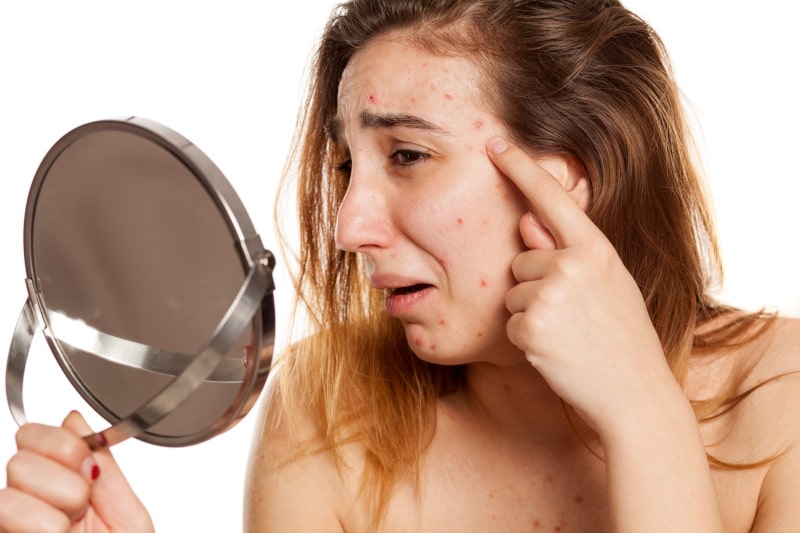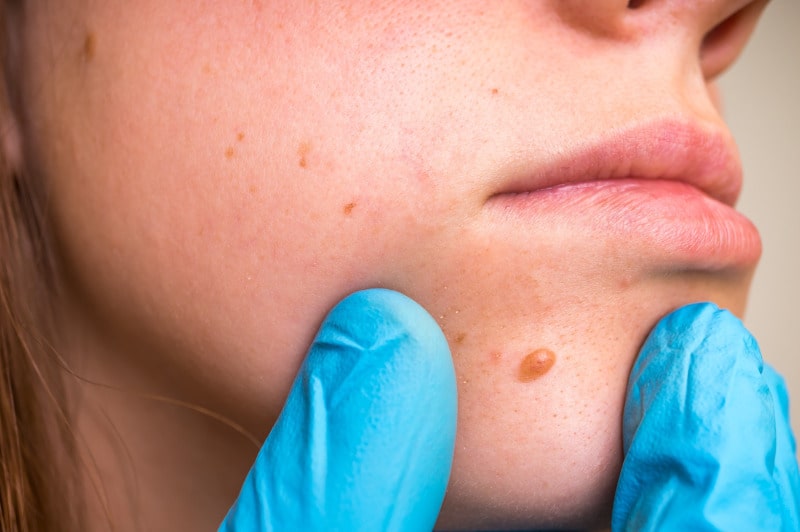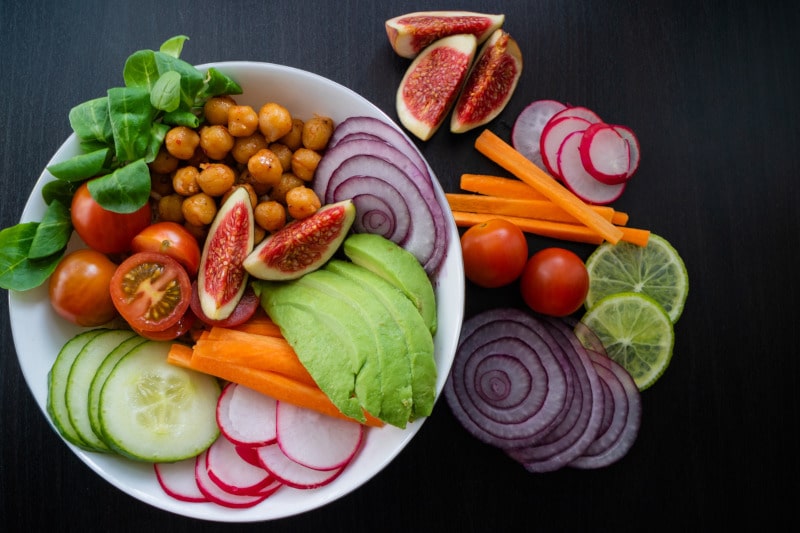To effectively prevent acne, it is crucial to adopt a balanced diet for hormonal acne, along with other personal care, such as hormonal control and stress management.
Acne is a skin condition that can be influenced by our diet for hormonal acne . Although it has been wrongly associated with certain foods such as chocolate, the relationship between diet and acne goes beyond that.
It is essential to understand that a proper diet for hormonal acne can help reduce symptoms and improve the quality of life of those seeking to prevent acne.
PlanEAT, the Nutrition App, offers valuable tools for designing healthy, personalized diets that help minimize this condition.
Contenido
Diet for Hormonal Acne
Acne is characterized by chronic inflammation of the sebaceous glands and blockage of hair follicles, resulting in the formation of blackheads, whiteheads, pimples and other skin lesions.
These symptoms usually appear in areas such as the face, neck, chest, back and shoulders, significantly affecting quality of life, especially in adolescence , when it is most common.
Although acne is typically associated with puberty, it is important to note that it can also manifest in adults , between the ages of 24 and 35, either as a first episode or as a relapse.

In this sense, following a diet for hormonal acne can be key to reducing or eliminating skin reactions and self-esteem.
Causes of Hormonal Acne
The reasons behind acne can be divided into four main factors :
- Excess sebum production.
- Hyperkeratinization of the pilosebaceous follicles.
- Participation in inflammatory processes.
- Excessive proliferation of the bacteria Cutibacterium acnes.
Studies have explored how stress, both physical and psychological, can affect the skin and gut microbiome. In addition, many skin conditions, such as psoriasis, rosacea and atopic dermatitis, have been observed to have a relationship with the gastrointestinal system, especially due to an imbalance in the gut microbiota . This dysbiosis is closely linked to changes in the immune response, which leads to the onset of these skin diseases.
To prevent acne and other skin conditions, it is essential to address both gastrointestinal and skin health, maintaining an adequate balance in the microbiota and strengthening the immune response.
Factors Influencing the Appearance of Acne
Several factors can contribute to the appearance of acne and affect the health of our skin:
- Hormonal imbalance : both in men, with an excess of androgens, and in women during periods such as premenstrual syndrome, pregnancy or menopause , and even in Polycystic Ovary Syndrome, where there is an increase in male hormones in women, acne can be a frequent symptom.
- Alteration of the intestinal microbiota : intestinal dysbiosis and excessive permeability can lead to a build-up of toxins in the body, triggering an inflammatory response that affects the health of the skin, causing problems such as less healthy and clear skin.
- Stress : Although it is not fully understood whether stress directly causes acne or affects the intestine and, therefore, the skin, it is clear that stressful situations can promote its appearance.
- Medications such as oral contraceptives and corticosteroids : acne can be a side effect of these treatments.
- Use of creams and cosmetics : certain products can clog pores, accumulate sebum and cause infections, leading to blackheads, pustules and pimples.
- Bad habits : An inadequate diet, poor facial hygiene, popping pimples or touching your face frequently can also contribute to the development of acne.

It is essential to address acne treatment with an acne-fighting diet combined with appropriate dermatological treatment and effective stress management to achieve satisfactory results and improve skin health .
Nutritional Treatment of the Diet for Hormonal Acne
Nutritional treatment to prevent acne is essential and focuses on a diet that reduces inflammation and promotes the elimination of toxins. This is achieved through an anti-inflammatory diet , rich in fresh and natural foods such as vegetables, legumes and fruits, which help maintain an adequate balance in the body.
To prevent acne, it is important to consume low-glycemic, whole-grain, unprocessed foods , such as brown rice, quinoa, and oats. These foods help control the inflammatory processes that can trigger acne, since high-glycemic foods, such as white bread and refined pasta, can increase sebum production in the skin and promote the appearance of hormones related to acne.
In addition, it is essential to include other key nutrients in the diet for hormonal acne, such as vitamin B5 , present in meats, vegetables, cereals and legumes, which contributes to hormonal balance. It is also recommended to consume immunonutrients such as vitamin A, C, D, E, magnesium and zinc , which have anti-inflammatory and healing properties.

These nutrients are found in foods such as orange and reddish fruits and vegetables , nuts, seeds, green leafy vegetables, oily fish, among others.
In addition to the diet for hormonal acne, it is recommended to reduce stress, avoid certain cosmetic products that can clog pores, and consider the use of probiotics that are beneficial for the intestinal microbiota. Niacinamide, a derivative of vitamin B3 , is also recommended for its sebum-regulating and anti-inflammatory effects in skin care.
PlanEAT, the free Nutrition App, helps you improve your diet and control acne with personalized diets adapted to the needs of each of our clients.

